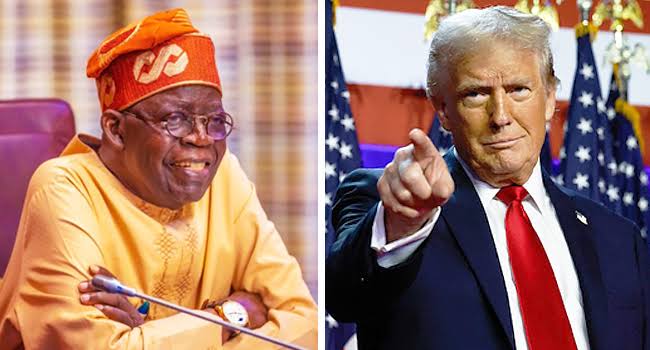U.S. President Donald Trump has threatened to slap a 10% trade tariff on Nigeria, fueling fears of a brewing diplomatic row between Washington and Abuja.
Nigeria’s Minister of Foreign Affairs, Ambassador Yusuf Tuggar, says the move stems from Nigeria’s refusal to accept deported Venezuelan prisoners from the U.S.
Speaking on Channels TV, Tuggar made it clear that Nigeria will not be pressured into becoming a dumping ground.
He said the country, already battling internal challenges with its 230 million population, has no room to house Venezuela’s deported criminals.
Trump’s threat came shortly after the BRICS Summit in Brazil, where President Bola Tinubu joined global leaders, including those from China and India.
Trump referred to the BRICS bloc as “anti-American” and promised to penalize its members economically Nigeria included.
But Tuggar insists the tariff threat isn’t solely about BRICS. He pointed to U.S. pressure on African nations to accept Venezuelan deportees.
According to him, accepting foreign prisoners from the U.S. is neither safe nor fair to Nigerians.
The visa conflict between both nations adds another layer of tension. The U.S. recently reduced visa validity for Nigerian citizens to single-entry visas lasting just three months.
The change affects categories like B1/B2, F, and J visas. Previously, many Nigerians had access to visas valid for up to five years.
The U.S. cited visa reciprocity as the reason, claiming Nigeria offers Americans only 90-day, single-entry visas.
However, Nigeria argues that it still grants five-year multiple-entry visas to U.S. citizens, calling Washington’s action “disproportionate” and lacking diplomatic respect.
Presidential aide Bayo Onanuga has denied reports claiming Tinubu suspended the five-year visa program for Americans.
He stressed that Nigeria remains committed to all existing bilateral agreements.
He added that Nigeria has introduced an optional short-term e-visa for easier processing, not as a replacement for long-term visas.
Tensions around visa policies have sparked reactions across Nigeria. Some see it as retaliation for Nigeria’s immigration reforms, which have hiked permit and quota fees for foreign nationals.
The reforms increased business permit fees and expatriate quotas by over 300%.
Travel agents say Nigerians will now spend more on visa reapplications, while frequent travelers face rising costs due to shorter validity.
Immigration experts warn that Nigeria’s new visa and permit rules may discourage foreign investors and strain international partnerships.
Public commentator Dr. Katch Ononuju believes the U.S. visa downgrade is a reaction to Nigeria’s BRICS membership. He says the move is meant to punish countries drifting away from Western alliances.
Legal scholar Livingstone Wechie has urged Nigerians and Africans to stop chasing U.S. visas and instead focus on building strong local economies. He says desperation to leave reflects the nation’s failing development indices.
This growing U.S.-Nigeria diplomatic crisis is now affecting trade, visas, and global alliances like BRICS.
Meanwhile, Nigeria’s Ministry of Foreign Affairs is actively engaging with the U.S. to reverse the new restrictions. The government says both sides are committed to finding a resolution that reflects mutual respect and long-standing diplomatic ties.
The visa standoff, rising tariffs, and escalating rhetoric suggest a tough road ahead for U.S.-Nigeria relations.
Observers say the U.S.-Nigeria diplomatic crisis may worsen unless both nations return to the negotiation table.
With diplomatic talks ongoing, both countries may yet find common ground but trust is quickly eroding.



